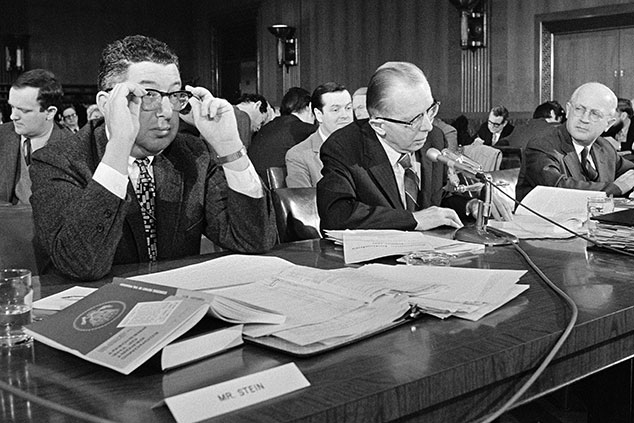
Far from it. That’s because his gloomy remarks about trade tensions and the global economy have left it a virtual certainty that the Federal Reserve will cut interest rates at the end of this month, and liquidity-addicted markets love easier money. The news sent America’s S&P 500 soaring above the 3,000 mark for the first time ever. The index is now up 20% so far this year. The Dow Jones Industrial Average index also breached 27,000.
This may herald the start of a new cycle of interest-rate cuts. Interest-rate futures show that traders think the Federal Reserve “could unravel all of last year’s four rate increases by 2020”, says Robin Wigglesworth in the Financial Times. If it fails to serve up the anticipated easing, many “will feel entitled to sue the central bank for breach of contract”, says John Authers on Bloomberg.
Taking out insurance
The mystery is why Powell is contemplating easier money at all given that US economic data remains reasonably strong, says Randall Forsyth in Barron’s. The American economy grew at an annualised rate of 3.1% in the first quarter and unemployment is close to a half-century low of 3.7%. Core consumer price inflation (which excludes food and energy costs) is rising at an annual rate of 2.1%, which is almost bang on target.
Markets appear to have “browbeaten the central bank into a defensive posture”, Richard Barwell of BNP Paribas Asset Manager told the paper. Trump’s “barrages of tweet attacks” and repeated threats to fire Powell have also added to the pressure to ease policy and drive down the dollar, adds Irwin Stelzer in The Sunday Times. The complaints of politicians and markets seem to have prompted an overreaction. The Fed has never before made such a “pre-emptive move to stave off a slowdown while the economy’s performance has been so close to its expectations”, economist Joe Carson tells Barron’s. The Federal Reserve once saw its job as being to take away “the punch bowl when the party gets going”, says Forsyth. Now it prefers to spike the bowl at the first sign that the party is slowing down.
Forever blowing bubbles
Years of ultra-loose monetary policy have “put a rocket under all asset prices” and made stockmarkets exquisitely sensitive to the merest hint of tighter money, says Jeremy Warner in The Daily Telegraph. It is hard to see how this “giant bubble” can be harmlessly deflated. Some will argue that people have been saying this for years and that the promised disaster has still not arrived. In reply, we might quote President Nixon’s economic adviser Herb Stein: “If something cannot go on forever, it will stop.”